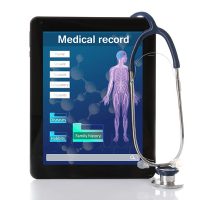Getting And Creating Good And Complete Medical Records

If you have an injury case, you need the best medical records that you can get. But wait—how do you just get good medical records? Medical records are made by your doctor, in response to, or in recording your medical needs and recovery. How does someone just “get good medical records?”
You are, in part, correct—medical records are just objective observations of your condition, and perhaps, subjective opinions made by your physicians. You have little or nothing to do with how your medical records are made or recorded. You don’t review, or approve of, your own medical records.
But there are some things you can do, not to get “good” medical records, but rather, to get medical records that are complete, tell a true story, and which are comprehensive and thorough.
Be Honest and Complete
Even though we (hopefully) trust our doctors, we often aren’t fully honest with them about the pain and the limitations that we have after an accident or because of injury.
Sometimes, we are trying to “sound tough,” and minimize pain or limitations, so as not to “be a complainer.” That’s not a good idea. Certainly, don’t exacerbate your pain or disability. But if something hurts or you can’t do something, you should be open about it to your doctor. Don’t minimize what you are going through or what you are feeling, just to sound resilient.
Sometimes, we don’t tell doctors how we are feeling, because we feel like that isn’t the doctor’s specialty. So, for example, you may not tell your mental health therapist about back pain, or you may not tell your neurosurgeon about a shoulder limitation.
Yes, doctors can usually only treat you for conditions in their specialty. Still, you should tell all of your doctors, all of your pain and limitations, even if outside of their specific medical specialty. They may not be able to treat you for those things, but you at least will have a consistent record amongst all doctors, of having mentioned your pain or limitations.
Be Specific and Clear
It is best to be as specific as possible (that’s not just for legal reasons, that’s also for medical reasons, so your doctor can better treat you). So, for example, don’t just say that your shoulder hurts. Say that you can’t move your shoulder in a given direction, or that your shoulder aches when you do things with it.
Specific retelling of your pain, can help doctors treat you, and again, creates more specific medical records.
About the Accident
Your doctor may ask you for information about the accident itself, such as how it happened. The doctor doesn’t care about liability-he or she is just trying to see what the mechanism of injury is, or what your body did during the accident.
Still, be as thorough with the doctor as possible. But just like in any situation, if you don’t remember something that’s OK. Don’t say things that you don’t remember accurately or that you never knew.
Contact our Rhode Island personal injury lawyers at Robert E. Craven & Associates at 401-453-2700 today for help and guidance through every step in your injury case.
Source:
consumerreports.org/health-information-technology/how-to-take-control-of-your-medical-record/
